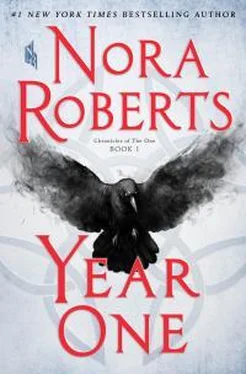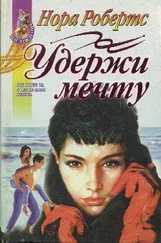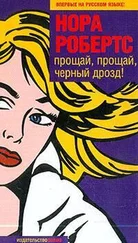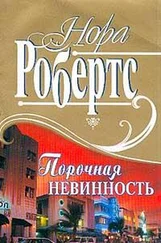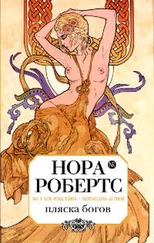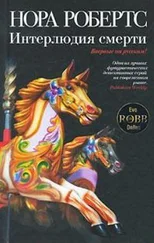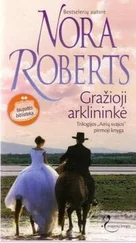“Why what?”
“Why would you give me anything? I was stealing.”
“So was Jean Valjean.” He shrugged. “He was hungry, too. Look, you can take the damn egg and go, or you can come inside, have a hot meal. It’s up to you.”
She lowered her hand, laid it on her belly. Thought of the baby.
He’d planted a rosebush for his dead. She would take it as a sign.
“I’d appreciate a hot meal. I can barter for it, and for the fruits and vegetables I took.”
He smiled then. “Whatcha got?”
“I can work for it.”
“Well.” He scratched the back of his neck. “We can talk about that.”
He stepped back, gave her plenty of room.
She could still run, Lana thought.
“Lady, if I wanted to hurt you, I’d have already done it.”
Now he turned, walked to where she saw the dogs—prancing and wagging—just outside the chicken wire.
“How did you know I was here?”
“I caught the flash of the sun on your field glasses. Or what I figured was field glasses. The dogs and I decided we’d head out, stop up the road, and walk back to see what you were up to. They won’t hurt you.”
As if to prove it, both dogs—big with thick, creamy fur and madly happy eyes—moved in to rub their bodies against her legs. “That’s Harper, that’s Lee. Mockingbird was my mother’s favorite book.”
She saw him glance toward the apple tree, the graves. Feeling foolish holding on to it, she handed him the egg. “Your parents?”
“Yeah. Yeah,” he said again, starting toward the house. “Those boots have some miles on them.”
“They did when I found them.”
Accepting that, he continued out, walked onto the porch, opened the unlocked front door. When she hesitated, he let out an impatient breath.
“I was raised in this house by the two people I buried out there. They lived here for thirty-five years, made a good life for themselves and for me. I’m damn well not going to disrespect them by pulling any crap on a pregnant woman under the roof they gave me. In or out?”
“Sorry. I’ve forgotten people can be decent.”
She stepped inside, into a wide, comfortable living room with a big stone fireplace, easy furniture that mixed styles in a cheerful, welcoming way.
It boasted considerable dust and dog hair.
Stairs made a jog up. A laundry basket full of jumbled sheets and towels sat on the bottom step.
He continued down a hallway, paused when she did at a room lined with shelves jammed with books and trinkets.
“My mother was a fierce reader. I’ve been catching up on reading lately myself.”
Like a dream—was she dreaming—the room drew her in, the memories of a life she’d once had. And more, as she reached out, took a book from the shelf, the love.
“Max Fallon. She liked his stuff. I haven’t tried him yet. Are you a fan?”
She looked up, eyes drenched, clutching the book, her love’s picture, to her heart. “My … my husband.”
“He was a fan?”
“Max.” She began to rock, to weep. “Max. Max.”
“Shit.” He pulled off his cap, raked hands through his hair. “Maybe you should sit down. You can keep the book. Just … I’m going to, ah, bring the truck back. So…” He gestured, eased out of the room.
She did sit, on the edge of a big chair of navy blue leather, and wept herself empty.
He hiked up the road for the truck, came back, put a kettle of water on.
She’d looked wound tight in the henhouse, he thought. Ready—and he suspected able—to hold her own. Eyes—big and summer blue—exhausted but fierce. And the pregnant—really pregnant—had struck him then as adding a fertile warrior angle to her.
But there, in his mother’s library, all that had fallen away, leaving her frail, vulnerable, broken.
He did better with the fierce and able.
When he heard her coming, he put a frying pan on the stove.
“I’m sorry,” she said.
“Losing somebody sucks. Pretty much everybody left knows how much.” He went to the refrigerator, took out bacon wrapped in cloth. “Max Fallon was your husband.”
“Yes.”
“Did you lose him in the Doom?”
“No. He got us out of New York. He got us away and kept us safe. They killed him. His brother killed him.”
“His brother?”
“His brother turned to the dark, his brother and the twisted witch who turned him. His brother, and the men who hate us because we’re not like them. They wanted to kill me. Her.”
She wrapped her arms around the mound of her belly. “Max saved us. He died for us. They killed him. Eric, his brother, and the Purity Warriors. They killed Max, killed people we were building a life with. Tried to kill more. I had to leave because they wanted me and would kill whoever stood in their way. They hunted me. They may still be hunting me.
“They’ll try to kill you if you help me.”
He nodded, said, “Huh.” Then turned back to the stove. “You want the eggs scrambled or fried?”
She’d worked herself up again, was nearly breathless with it. Her hands clutched at her sides. “Who are you?”
“Swift. Simon Swift. In another life I was Captain Swift, U.S. Army. In this one, I’m a farmer. Who are you?”
Slowly, she took off her pack, set it aside. “Lana Bingham. I was a chef. I am a witch.”
“I got the second back in the coop when you gave me a little punch.”
“I didn’t mean—”
“Just a little. Bet you’ve got more. A chef? Why am I cooking?”
She let out a breath, took in another, then crouched by her pack. She took out herbs, a tomato, a pepper, a couple of spring onions. “Would you like an omelette?”
“Sure.”
“It’s a nice stove. It’s a nice kitchen.”
Her voice shook again. He could see as well as hear her fight to steady it. “How do you get the gas?”
“Gas well.”
“A what?”
“Natural gas well.” He gestured vaguely toward the window. “It’s piped into the house. We’ve got gaslight, gas stove, gas every damn thing. Some wind power, too.”
She washed her hands in the farm sink, then the herbs and vegetables. “I need a few things. More eggs, a small bowl, a whisk.”
“I’ve got it.”
After heating the skillet, she put on bacon. She took a chef’s knife—serviceable—from a block, pulled over a cutting board, and began chopping while it sizzled.
Cooking. Normal. How could anything be normal?
And yet, chopping herbs, she felt more herself than she had in weeks.
“You were in the army.”
“Yeah, for about ten years. I’d had enough, but I got out primarily because my mother got sick. Cancer. They needed help around here while she was fighting it. She fought it, beat it. And then … Well, fucking Doom.”
“I’m sorry.”
They worked together in silence for a few minutes. He got her the can he used to store bacon grease, the plastic tub he used for kitchen compost. And watched, mildly in awe, as she cooked.
“How long have you been on the road?” he asked her.
“I don’t know. I lost track. It was the Fourth of July when … I left.”
“About six weeks. Where’d you start?”
“We were in a place we called New Hope, in Virginia. I think south of Fredericksburg. Where am I now?”
“You came a ways. This is Maryland, western.”
“What are the mountains?”
“The Blue Ridge.”
“Are there other people?”
“Some. There’s a town—more a settlement now. We do some trading. I was taking produce in. There’s a mill. They’re making flour. Got some sheep, a loom. A blacksmith, a butcher. You work with what you’ve got.”
She nodded, folded the egg over the vegetables. “Is there a doctor?”
Читать дальше
